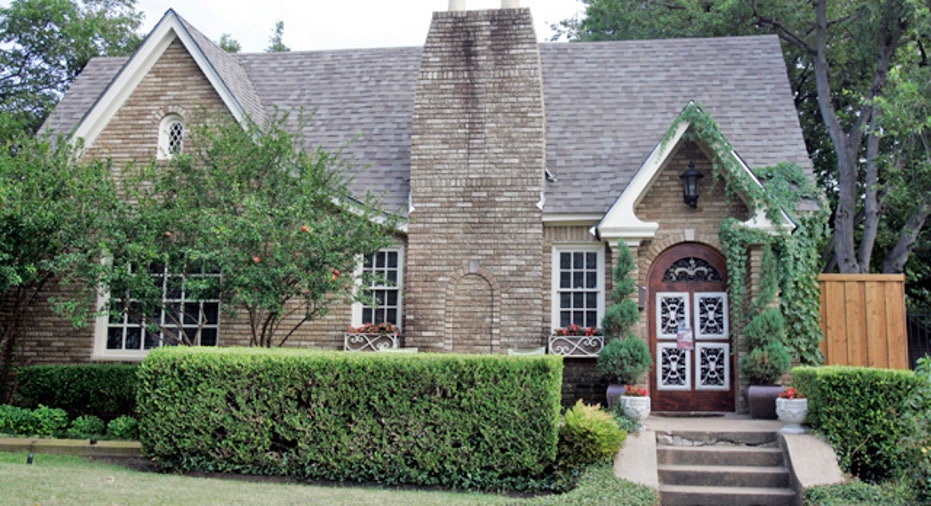Buying Instead of Rebuilding After Disaster

After you've lost everything in a disaster, home insurance helps you pick up the pieces and rebuild.
But what if you'd rather buy another house somewhere else?
You file a home insurance claim, sell the lot, buy another place and move on with your life. That might sound easier than the painstaking process of rebuilding your house from the ground up, but it comes with its own set of complications.
"You have to prove what you're entitled to," says Greg Raab, a National Association of Public Insurance Adjusters board member and manager of integrated services at Adjusters International in Utica, N.Y. "You have to dot your i's and cross your t's. It's not as simple as showing your receipts."
Whether you can use the full replacement cost -- the amount it would take to rebuild your home -- to buy a comparable house is not a surefire option, except in California, where a state law expressly gives consumers with replacement cost policies that right, says Amy Bach, executive director of United Policyholders, a consumer advocacy group. But even so, confusion and disagreements arise even in California.
"The big hole people seem to fall into is they can't reach agreement with the insurance company on that theoretical value [to rebuild]," she says.
Here are some of the questions that will arise if you're thinking about buying instead of rebuilding.
Do you own the home free and clear?
Any settlement will be made to you and the mortgage lienholder if you still owe money on your home. If the settlement is large enough to pay off the mortgage, then that portion goes to the lender and you keep the remainder for a down payment on another house.
"If the settlement is not enough to pay off the mortgage, then buying another property is probably off the table," Raab says.
What does your insurance policy say?
Most home insurance policies provide replacement cost coverage for the dwelling. In fact, a mortgage lender typically will require the homeowner to have replacement cost coverage, says Ronald Reitz, president of the National Association of Public Insurance Adjusters and president of San Diego-based Quality Claims Management Corp.
But there are some policies that provide coverage for actual cash value of the home (not including the lot). This might be the case for an older, run-down home, where the cost to rebuild would far exceed the value of the home, putting replacement cost coverage out of reach. In California, actual cash value for a dwelling is the same as fair market value, unless it's defined otherwise in the policy, Reitz says.
But in states other than California, even replacement cost policies can include limitations on the settlement if you decide to buy another home instead of rebuild.
"Know exactly how your policy treats a total loss. When push comes to shove, the language in the policy is what matters," Raab says. "It's a contract."
How much would it cost to rebuild?
After a disaster, the insurance company doesn't just write you a check for the amount of your dwelling coverage and send you on your way. If you have a replacement cost policy, you and the insurance company reach an agreement on how much it will cost to rebuild, and then the insurance company will release the money in portions. Typically the insurer will provide the actual cash value and then release the remainder once you've actually replaced the home, whether you rebuild or buy, Reitz says.
Even if you plan to buy, you and the insurance company must settle on a figure for how much it will cost to rebuild to get the full replacement cost amount. United Policyholders recommends you get independent estimates on the scope of the loss and the cost of rebuilding to replace the house. Then use that information to negotiate with the insurer for how much money you can use to buy a replacement home.
"You have to present compelling evidence of what it would cost," Bach says. In California, "he who negotiates well can generally buy instead of rebuild if you have a replacement cost policy."
That means you'll need to hire some help, such as a public insurance adjuster. Contractors aren't going to want to put the time into estimates for a theoretical job they'll never get.
Essentially you have to recreate on paper the house to figure out what you're entitled to, Reitz says. "That's quite a process to figure out. . . . It's hard for people to navigate on their own."
Why not just accept what the insurance company offers?
Many insurance company adjusters do a good job, but the home insurance company has an incentive to keep costs down, Reitz says. Insurance companies want to interpret coverage as narrowly as possible, while homeowners want a broad interpretation.
Once you agree on a settlement, the insurance company won't release the full amount of the replacement cost until you've actually bought a replacement home. Then the insurer will want to make sure the money is spent toward a comparable replacement. Insurance is supposed to put you back to where you were -- not make you better off. You're free to buy a bigger and better home than you had, but you'll have to foot the bill for any amenities in a new home that you didn't have in your old house.
As you go through the process, don't rush any decisions. Both Raab and Reitz have seen clients' marriages crater under the stress of losing everything in a disaster.
"Don't underestimate the stress you and your family may be going through," Raab says. "Ask for help from your agent or trusted adviser. Don't make decisions under duress."
The original article can be found at Insure.com:Buying instead of rebuilding after disaster



















